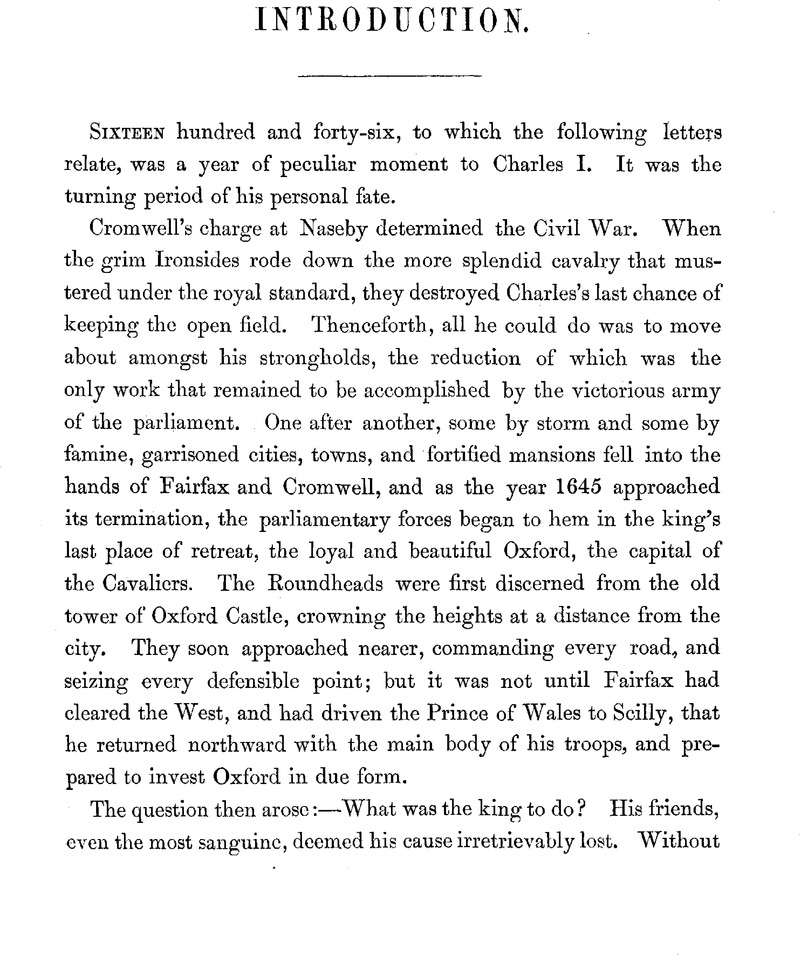No CrossRef data available.

page vii note a Clarendon's State Papers, ii. 263.
page vii note a Ibid. ii. 268.
page viii note a Even so late as the treaty of Uxbridge (February, 1644–5) Charles knew so little of his opponents, and was so blindly persuaded of the divinity which hedged him in, that he wished his commissioners to insinuate to those of the parliament, in their “private discourses,” that they were “arrant rebels, and that their end must be damnation, ruin, and infamy, except they repented and found some way to free themselves from the damnable way they were in.” He thought such representations “might do good.” (Evelyn's Diary, iv. 137, ed. 1852.)
page xii note a Clarendon's State Papers, ii. 202.
page xvi note a At p. 40, note a, this period is printed by mistake as only “five days.” The figures shew the real number.
page xvii note a Clarendon's State Papers, ii. 213.
page xxvii note a He does not state this accurately. The words were, “he doubts not so to join his endeavours with his two houses of parliament as to give just satisfaction.”—Message of Deo. 29,1645.